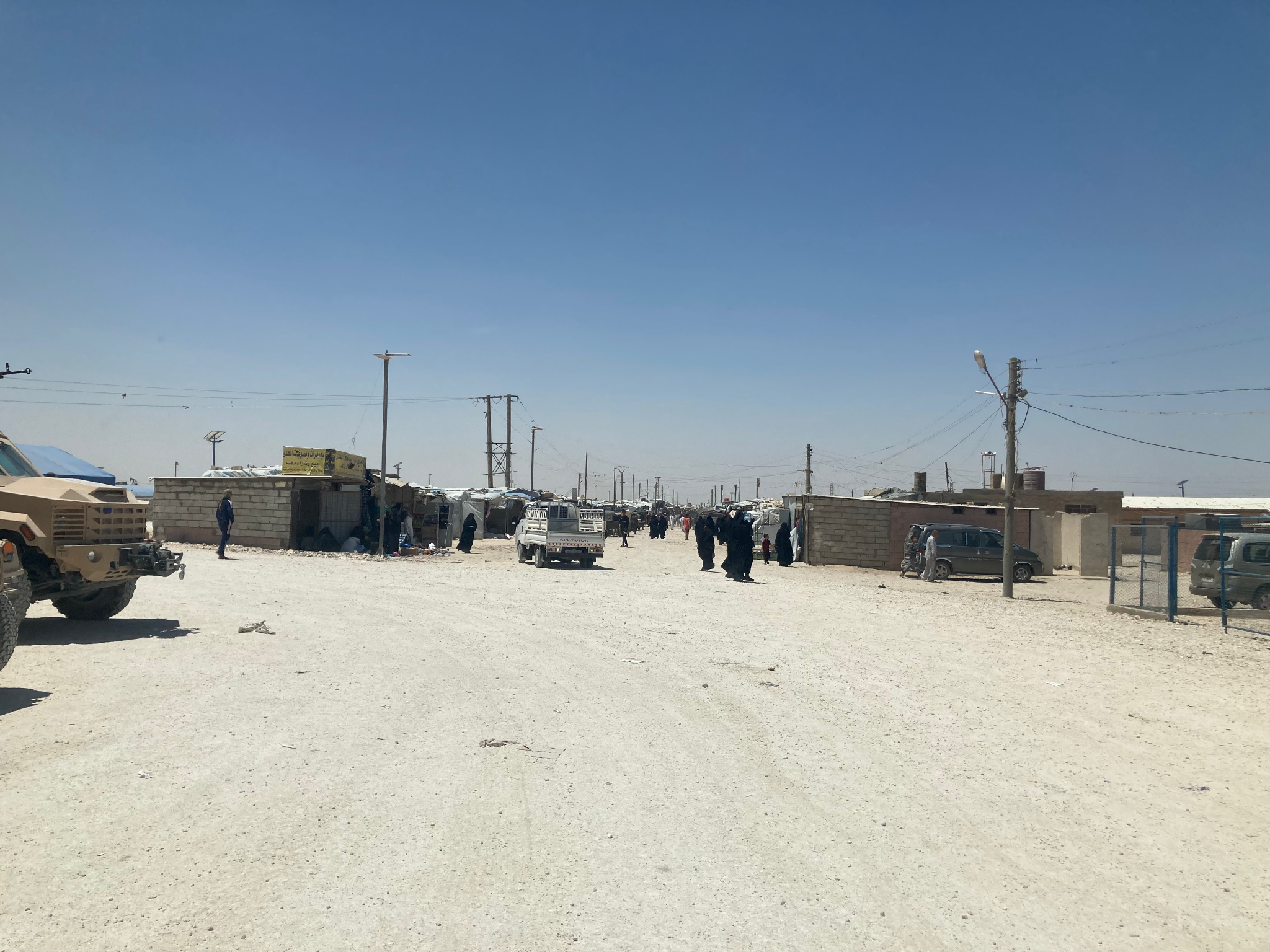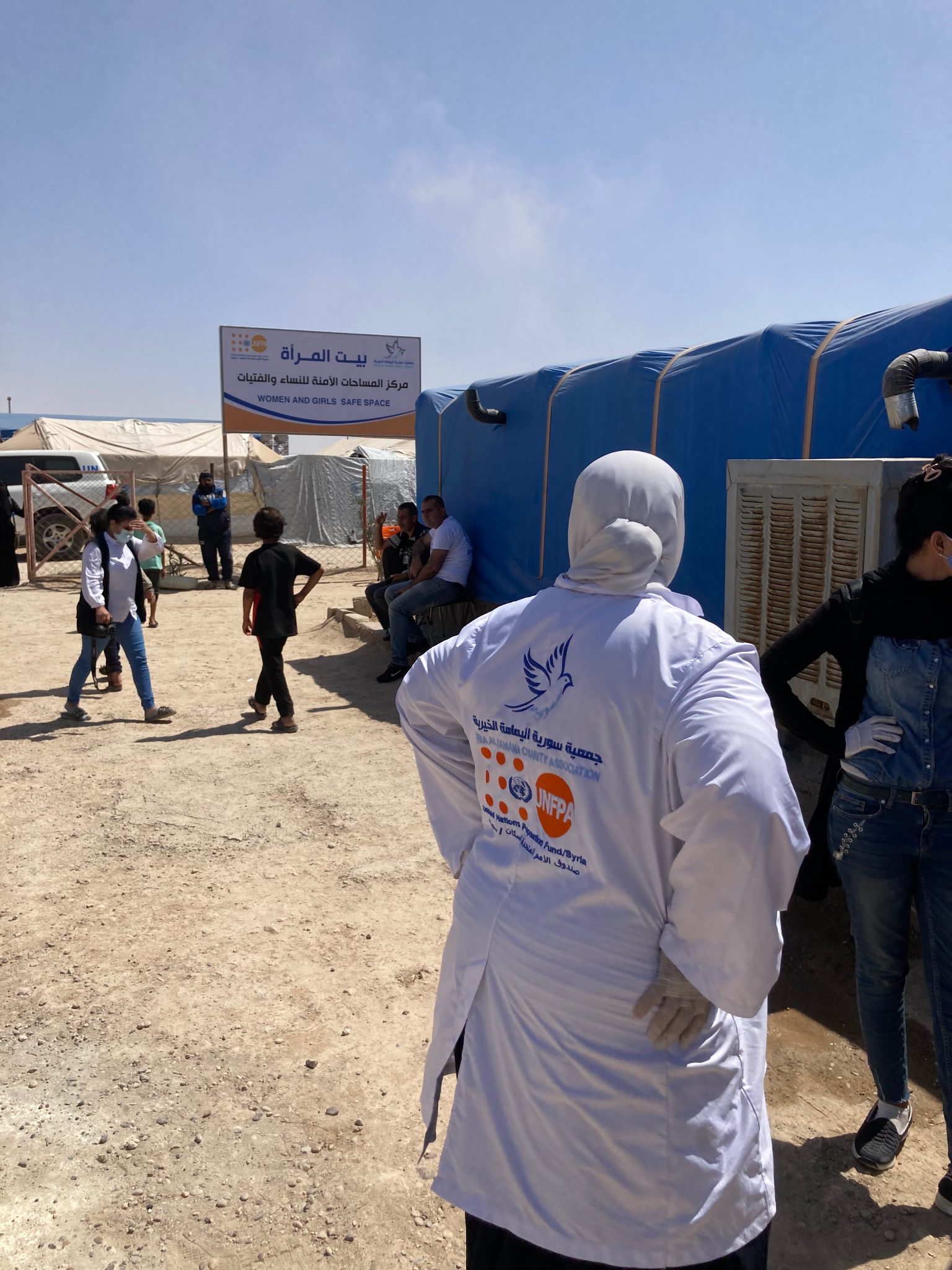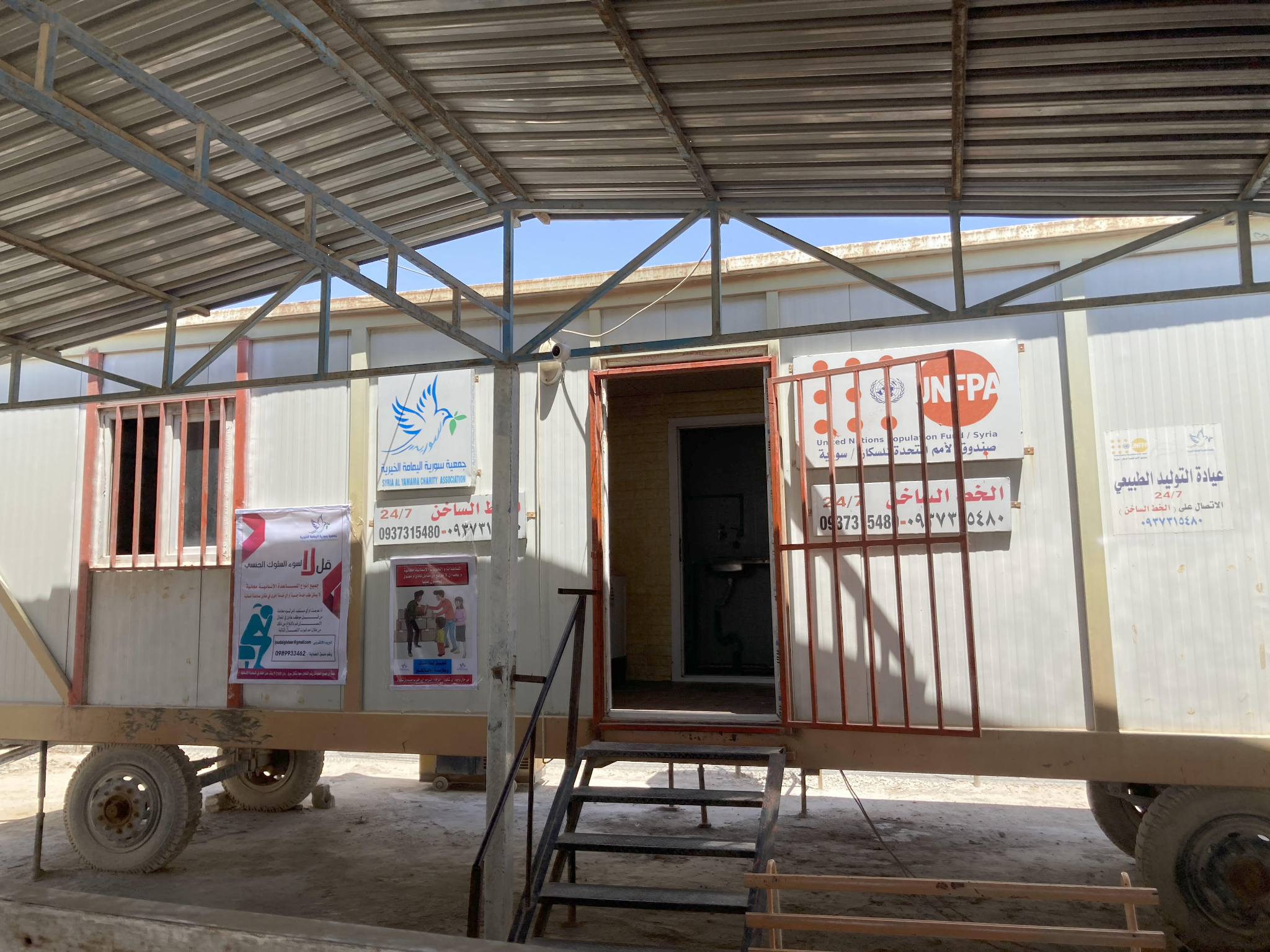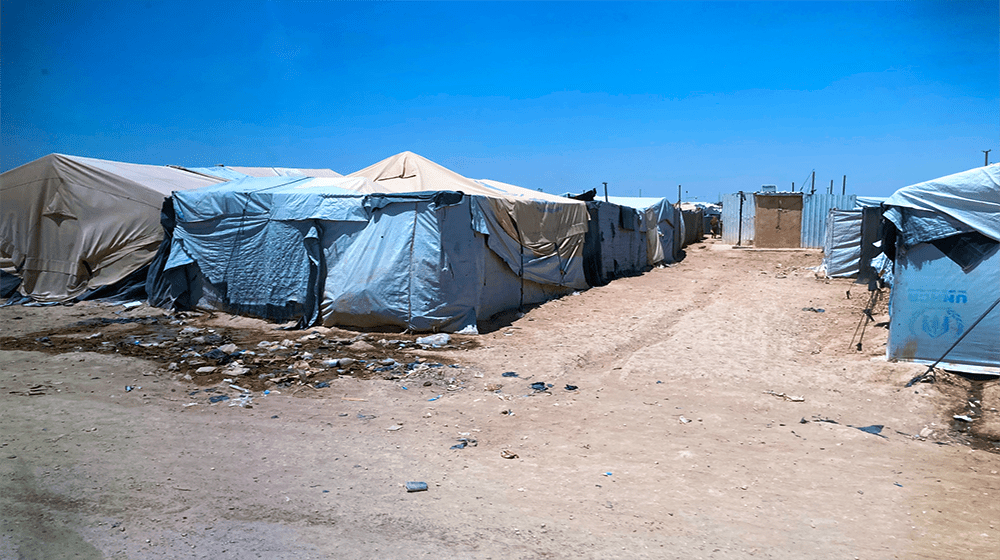“I have been in Al Hol Camp for two years,” explains Sara, one of the women who reside in Al Hol. “This is a very dangerous place and I feel frightened every time the sun goes down. We don’t leave our tents at night because there have been many people killed.”
Located approximately 45 km from Al Hasakah, north-eastern Syria, Al-Hol is a sprawling camp stretched several miles across a barren desert landscape. Women and children under the age of 17 make up about 93 percent of the 55,000 inhabitants. The center accommodates approximately 60 different nationalities, most are Syrian (34 percent) and Iraqi (52 percent), but thousands of women are from other countries (approximately 15 percent).
“The situation in Al-Hol Camp is extremely volatile with at least 26 murders reported, including those of 20 women, and continuous reports of sexual violence,” explains Assistant Secretary-General for Humanitarian Affairs and Deputy Emergency Relief Coordinator, Joyce Msuya. The humanitarian situation in the camp is of significant concern, where the provision of life-sustaining services, including water, is frequently interrupted due to the prevailing security situation.

UNFPA supports a local non-governmental organization (NGO) to provide sexual and reproductive health (SRH) and gender-based violence (GBV) prevention and response services through six mobile teams. Four of the mobile teams provide integrated SRH and GBV services to women in their tents and two mobile teams function as semi-static clinics based out of tents in two areas of the camp. UNFPA further supports two static SRH facilities: a maternity clinic that provides services, including natural delivery 24 hours 7 days a week, and one smaller SRH clinic attached to a UNFPA-supported women’s and girls’ safe space (WGSS).
Women are provided with antenatal and postnatal care, treatment for reproductive tract infections, psycho-social support, and case management for survivors of GBV. UNFPA also provides dignity kits[1] that include hygiene items such as soap, sanitary pads, and shampoo.

“Many women could not access obstetric care at night, and as a result, they had no choice but to give birth in their tents. From January to June 2022, 141 newborns were delivered in Al Hol Camp. Of these, 63 newborns (45 percent) were born in a tent without a skilled birth attendant”, UNFPA's team was informed through a visit to Al-Hol Camp in June 2022.
Fear of violence appears to be the main reason preventing women from leaving their tents at night. Access to the ambulance service was halted in January 2022 because of the high-security threats; in early 2022, a paramedic at the hospital was murdered while on duty, and another healthcare worker was injured.
The field hospitals will not compromise their staff’s security by allowing them to travel into the camp’s phases at night. Access to private vehicles to the camp is also restricted at night; while arranging private transportation to reach the hospital is not possible. The nightly curfew also limits women’s ability to venture too far on foot from their tents. Walking at night is a terrifying thought given the high number of incidences of violence and murders. In this context, women feel they have no other choice but to give birth in their tent. None of the women who birthed in their tent gave birth with a skilled birth attendant; some gave birth with a family member or friend's help, and others alone.

“When I was pregnant, I was worried because the ambulance had stopped working at night due to the insecurity. I woke up in labor, and I knew I couldn’t reach the health services. I was terrified; I knew I should give birth to a doctor or midwife but if I stepped out of my tent I could be attacked. There is no transport at night, and I couldn’t walk. This is why I gave birth to my son in my tent, alone,” shared Jamila, a resident of Al-Hol. Other women shared similar concerns with UNFPA.
Globally, international medical bodies as well as UN Agencies including, UNFPA and the World Health Organization (WHO), strongly encourage the presence of a skilled birth attendant for every birth as a lifesaving intervention for mothers and newborns. Furthermore, the proportion of Skilled Birth Attendance is an indicator of achieving Sustainable Development Goal (SDG) Target 3.1, ‘By 2030, reduce the global maternal mortality ratio to less than 70 per 100,000 live births.’
The sanitation and hygiene conditions in the tents are not conducive to having a safe and healthy delivery and the risk of infection for both the newborn and the mother is high. Even more worrying is that if there were any complications, such as hemorrhage, women would be in a life-threatening position given the inability to access transportation to the health facility. It is not surprising, therefore, that 61 percent of all deaths reported in Al-Hol camp in 2021 were deaths that happened in tents.
UNFPA upholds SRH rights for all women, regardless of nationality, religion, ethnicity, sexual orientation, or political affiliation, and promotes the right to the highest attainable standard of health, including sexual and reproductive health. Access to life-saving obstetric care in Al-Hol Camp is essential as not having access to this key assistance is detrimental to women’s health and gender empowerment because it could cause the death of the mother or long-lasting disability, especially in marginalized settings.[1] Pregnancy and childbirth are the most vulnerable stages of a woman's life, both physically and emotionally and all women, including those in Al-Hol Camp, must be supported to have safe deliveries.


